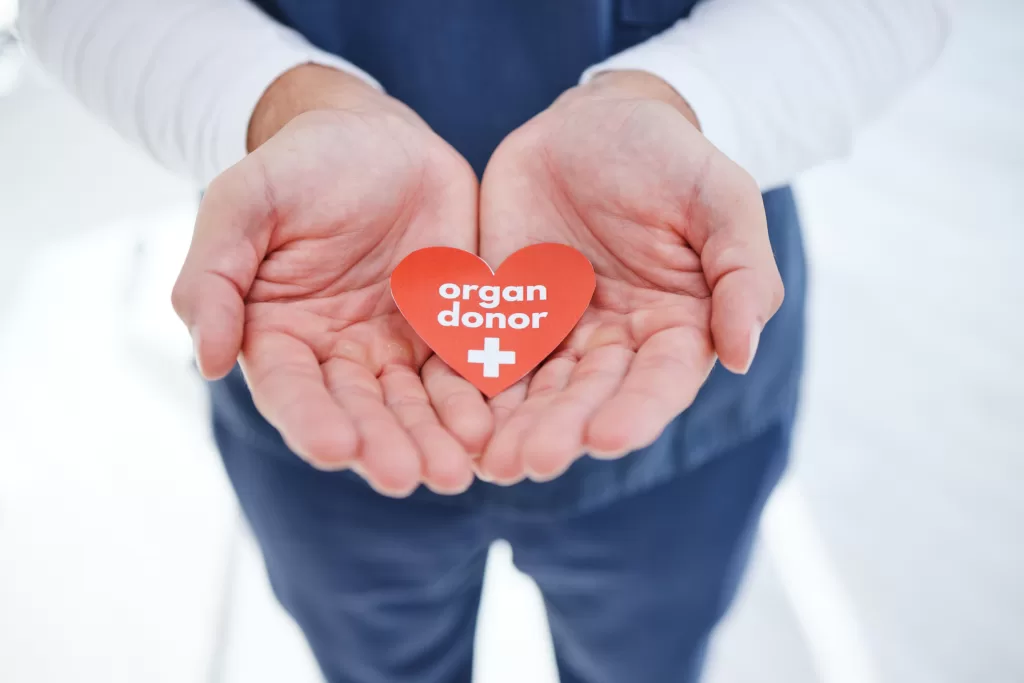Affinity Health, a leading provider of high-quality health coverage, debunks common myths about organ donation.
Every year, thousands of lives are saved and transformed through the generous act of organ donation. Yet, despite its life-saving potential, many myths and misconceptions surround organ donation, preventing people from registering as donors.
In recognition of Organ Donor Month, let’s examine the facts behind these misconceptions.
Understanding Organ Donation
Organ donation is the procedure of donating an organ or a portion of an organ to be transplanted into another individual. Transplants can involve the heart, lungs, kidneys, liver, pancreas, intestines, and tissues like corneas and skin.
“In South Africa, there is a critical need for greater awareness and participation in organ donation. The waiting lists are growing, and more people, including young children, are dying almost every day while waiting for organs,” says Murray Hewlett, CEO of Affinity Health.
“According to the Organ Donor Foundation, there are about 4,700 people in South Africa waiting for a life-saving organ or cornea transplant. However, only about 0.2% of the population is registered as organ donors. The organ shortage is especially severe for kidney transplants – the country’s most in-demand organ.”
Common Myths and Facts About Organ Donation
Myth 1: If I’m an organ donor, doctors won’t work as hard to save my life.
Fact: This is one of the biggest myths about organ donation. The fundamental responsibility of healthcare providers is to save lives. The medical team involved in your care is entirely separate from the transplant team. Organ donation is only considered after all life-saving efforts have been exhausted and death is declared.
Myth 2: I can’t be an organ donor because of my age or medical history.
Fact: There is no age limit for organ donation. The choice to use your organs is based on strict medical criteria, not age. Even individuals with pre-existing medical conditions can often donate. Each prospective donor’s organs are assessed individually to determine their eligibility.
Myth 3: My religion doesn’t support organ donation.
Fact: Most major religions support organ donation, viewing it as an act of charity and compassion. This includes Christianity, Islam, Judaism, Hinduism, and Buddhism. Discuss this with your religious leader if you have concerns.
Myth 4: Rich and famous people receive organs faster than others.
Fact: The organ allocation and transplant process are highly regulated and based on medical need, compatibility, and the severity of the patient’s condition, not social status or wealth.
The Southern African Transplant Society(SATS) and the South African Tissue Bank Association(SATiBA) oversee the organ allocation system nationwide. These organisations collaborate with the National Department of Health to ensure organ and tissue allocation is conducted fairly and equitably, following established guidelines and ethical standards.
Myth 5: My family will be charged if I donate my organs.
Fact: Organ or tissue donation does not cost the donor’s family anything. The recipient’s insurance or organ procurement organisation covers all medical expenses related to the donation process.
Myth 6: I can’t have an open-casket funeral if I donate my organs.
Fact: Organ donation does not interfere with having an open-casket funeral. The donor’s body is treated with the utmost respect, and surgical procedures are carried out with care to maintain the body’s appearance.
Myth 7: I’m too young to decide on organ donation.
Fact: Individuals of all ages can express their wish to become organ donors. However, parents or legal guardians must provide written approval for children under 18 to donate organs.
Myth 8: If I donate a kidney, I will have health problems later.
Fact: Living kidney donors can lead healthy, active lives after donation. The remaining kidney typically adapts and functions well enough to maintain health. Donors are thoroughly screened to ensure they are healthy enough to donate without adverse effects.
Myth 9: Organ donation is against my cultural beliefs.
Fact: While it is true that certain cultures and religious groups have reservations or specific guidelines regarding organ donation, many cultural beliefs support organ donation so long as conditions and specific religious laws are followed.
Myth 10: If I have signed up as an organ donor, I cannot change my mind.
Fact: Registering as an organ donor is voluntary, and you can change your mind anytime. You can update your status by revisiting the organ donor registry in your area or updating your driver’s license records.
Register To Be an Organ Donor
To become an organ donor in South Africa, follow these steps:
Register: You can register with the Organ Donor Foundation of South Africa by visiting its website or calling its toll-free number. You can also enlist through various medical facilities and hospitals.
Inform Your Family: Make sure your family and loved ones know your decision to be an organ donor, as their consent is often required at the time of donation.
Carry a Donor Card: You will receive a donor card once registered. Carry this card with you and consider indicating your donor status on your driver’s license.
Update Medical Records: Inform your healthcare provider about your decision to be an organ donor so that it can be noted in your medical records.
Conclusion

Organ Donor Month is a time to celebrate the lives saved through organ donation and to encourage more people to consider this generous act. Organ donation profoundly impacts recipients, their families, and communities. One donor can save up to eight lives and improve many lives through tissue donation. By debunking common myths and understanding the facts, we can overcome the fears and misconceptions that prevent many from registering as donors.


























